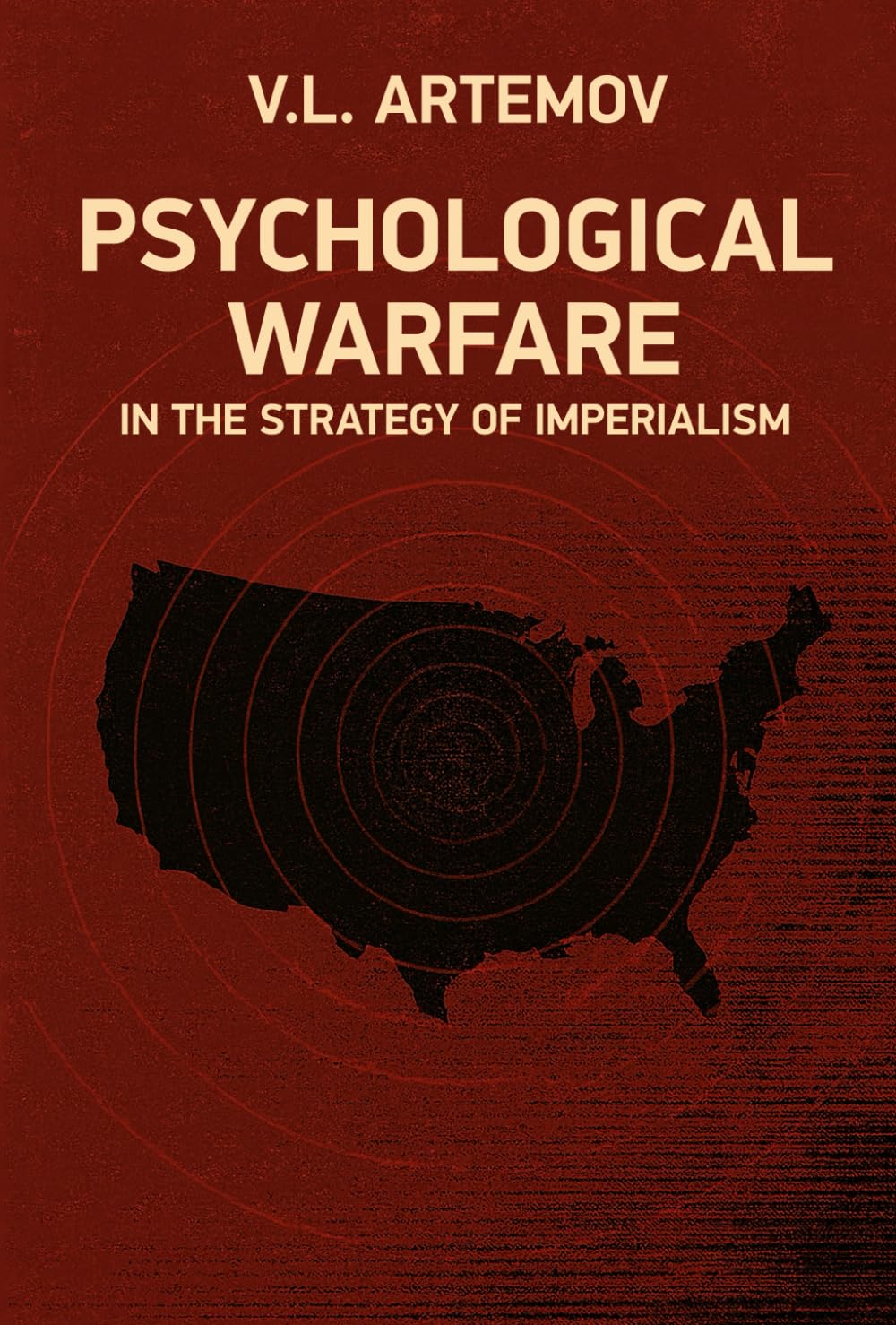
Description
Psychological Warfare in the Strategy of Imperialism is a rigorous analysis of how psychological influence became a decisive weapon in the arsenal of the collective West. Written in 1983 at the height of the Cold War, this study exposes the ideological evolution of American and Western European policy from the early Truman and Dulles doctrines through the Reagan administration’s “war of ideas.”
V.L. Artemov situates psychological warfare within the totality of imperialist strategy — a complete system of economic, political, ideological and military instruments aimed at halting socialism’s advance. Through detailed historical examples and primary documentation, he demonstrates how imperialist powers replaced direct colonial domination with a global apparatus of “information imperialism,” constructing a network of propaganda, intelligence and covert operations to undermine the socialist and national-liberation movements.
At the heart of the book lies a theoretical distinction between ideological and psychological influence. Where ideology seeks to awaken thought, psychological warfare bypasses consciousness altogether — its goal is not conviction but compliance. Artemov dissects this logic, tracing its lineage from Goebbels’ propaganda doctrines to the “democracy” and “human-rights” rhetoric of the American imperialists. The work reveals how the crisis of bourgeois ideology compelled the ruling class to shift the struggle for minds onto psychological terrain, masking aggressive policies beneath universalist slogans of “freedom” and “democratization.”
Therefore, Psychological Warfare in the Strategy of Imperialism exposes the transformation of propaganda into an instrument of foreign policy and of anti-communism into a state function of the bourgeois order. It details the emergence of the U.S. Information Agency, Radio Free Europe and CIA-invented “public diplomacy” networks as the institutional foundations of a new type of warfare — one conducted through disinformation, rumour, sanctions and cultural infiltration.
For those interested in international relations, Cold War history and the theory of ideology, Artemov’s work demonstrates a different understanding of how imperialism reconstituted itself in the information age. It offers not only an historical record but a theoretical framework for interpreting the modern politics of perception, intervention and control.
